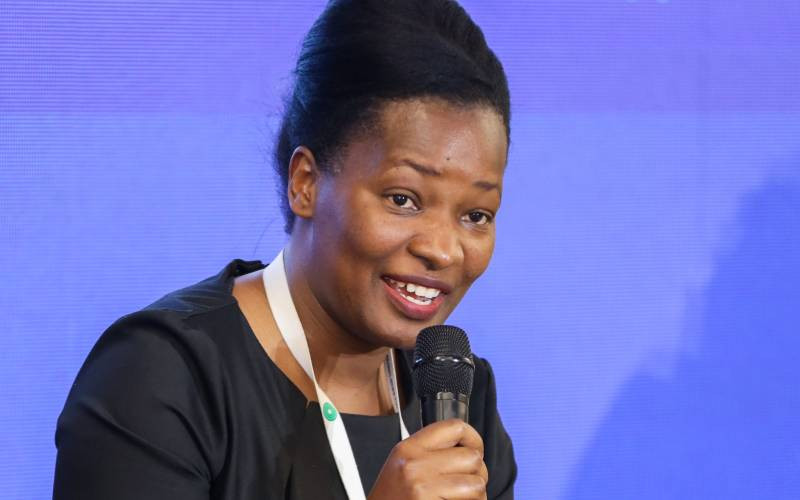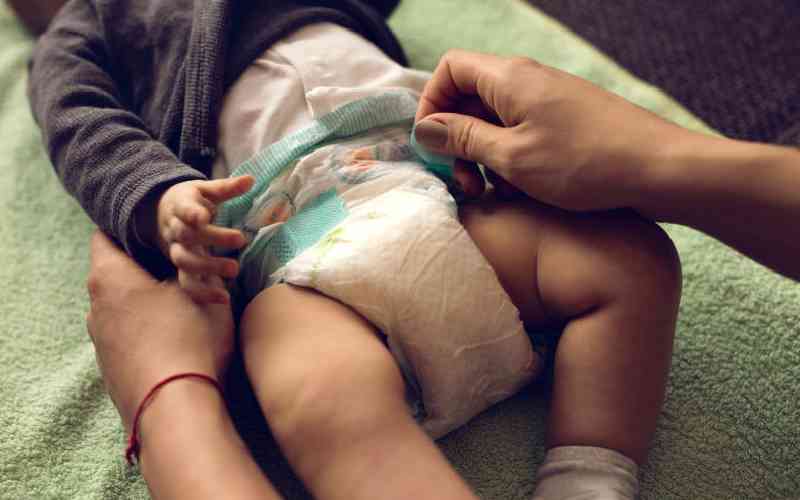
As a public health expert and researcher, I love numbers. They are an accurate representation of the gravity of an issue. According to the 2022 Kenya Demographic and Health Survey, 15 per cent of girls between the age of 15 and 19 have ever been pregnant. This statistic increases as they age - 3 per cent among 15-year-olds to 31 per cent among those aged 19.
This is a clear indication that as parents and guardians, there is a need to have age-appropriate conversations on sex. We live in an age where our children are exposed to information through different platforms, these include online and the media, peers, older people and many other avenues. This means that we are raising a curious generation hence, a case for age-appropriate sex education.
Nevertheless, culture is among the many barriers that affect sex education in our society. It shapes our knowledge, beliefs, and practices of sexuality. The earliest influences on our sexuality are the household and societal sexual norms that we grow up with and pass on to our children. This makes it difficult for us as parents to educate our children on sexuality.
However, parents must appreciate their unique role in the socialisation of their children. This includes shaping their worldview about sex. We need to appreciate that as a parent, your children are likely to see you as an authority, a source of credible information and a safe space for them when it comes to such information.
The biggest challenge we have while walking this journey is the myth that when we talk to our children about sex, we are giving them permission to engage in it. Nothing could be further from the truth! We are providing accurate and reliable information as parents and cultivating a positive environment to protect our children. We need to appreciate that if we do not provide age-appropriate sex education to our children they will fall prey to the internet, peers and the world out there which will provide sex training which may not turn out so well.
But why bother with conversations around sex for your teenager?
Recently I was privileged to hear the two sides of this conversation during a recent public forum at the Aga Khan University's Life Conversations Forum that debated the sex lives of Kenyans. On one side were parents who although believe there is credence in sex education, struggle with the timing, what to say and how to say it.
On the other hand, we had young people who lamented how they struggled to navigate life with little or no credible information. I will share a few thoughts from my experience and from these conversations.
- Understanding obstetric violence and why it is a global concern
- Gender-responsive health policies key to achieving equity, experts say
- Why women aren't lining up for life-saving screening, vaccine
- Organisation protects boys and girls in fight against FGM in Samburu
Keep Reading
We need to help children understand their bodies
Sex education is not only about the act of sex but also about matters such as body development, body positivity, confidence, relationships, personal skills communication, sexual behaviour and society and culture.
We can only protect our children by empowering them to understand to know what an inappropriate touch is. It is therefore important for our children to understand their bodies and to know when they should tell mummy, daddy or guardian when someone invades their privacy. This sets a good foundation for future conversations on sexual matters.
We need to protect children against sexual abuse and exploitation.
Empowering our children about consent is very important in the prevention of sexual abuse and exploitation. Teaching your children how to create boundaries is critical in preventing people from taking advantage of them. It will also help children to understand the concept of sexual abuse and why it is a criminal offence.
Sex education will prevent the spread of sexually transmitted diseases and early pregnancies
Sexual education, especially for teenagers is critical because of the risks associated with engaging in sex such as early and unwanted pregnancies and the risk of sexually transmitted diseases. This is a hard conversation but very necessary.
We have various resources online that can prepare parents for this conversation. Remember teenagers are already informed, therefore as a parent, you should be honest and nurture a relationship with your teenager. It is by building trust that we allow our teenagers to come to us with sensitive information.
Empowering our children is an act of love.
Whereas it is important to be honest and direct, we need to have age-appropriate conversations on sex with love and compassion. Let us also think about the teen's views, thoughts and feelings and focus on their well-being. It is critical that we also acknowledge that their questions and concerns are valid. This way we will create a safe space for our teenagers.
While some level of sex education happens in school. Parents must also have this conversation at home as they are the source of authority for their children. As parents, let us seize the moment and bring up such discussions tactfully and comfortably as and when the opportunity arises. Let us affirm and reassure our teenagers of our love for them. Talk early, often taking into consideration the age of the child. Let us remember our children are the future, they are our future.

By Dr Maureen Akolo, Public Health Expert. The writer is a faculty member at Aga Khan University's School of Nursing and Midwifery, East Africa. Any opinions expressed are solely those of the writer.
 The Standard Group Plc is a multi-media organization with investments in media platforms spanning newspaper print
operations, television, radio broadcasting, digital and online services. The Standard Group is recognized as a
leading multi-media house in Kenya with a key influence in matters of national and international interest.
The Standard Group Plc is a multi-media organization with investments in media platforms spanning newspaper print
operations, television, radio broadcasting, digital and online services. The Standard Group is recognized as a
leading multi-media house in Kenya with a key influence in matters of national and international interest.











